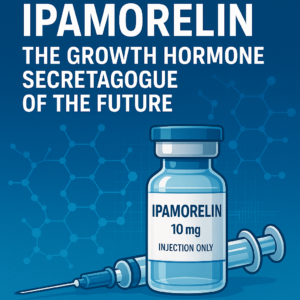Understanding Kratom: An Introduction
Kratom, a herbal product from the leaves of the Mitragyna speciosa tree, has gained popularity for its potential benefits. Users often seek relief from pain, anxiety, and fatigue. When you explore kratom options, you’ll mainly come across two forms: capsules and powder. Each form has its unique advantages and disadvantages. This guide will help you determine which is better for your needs.
What is Kratom?
Kratom is native to Southeast Asia. People there have traditionally used it for centuries for its stimulating and sedative effects. The leaves contain compounds known as alkaloids, primarily mitragynine and 7-hydroxymitragynine. These substances interact with the body’s opioid receptors, helping alleviate pain and enhance mood.
Understanding these properties is crucial, but so is knowing how you want to consume kratom. Whether through capsules or powder, your method may impact effectiveness, convenience, and your overall experience.
The Basics of Kratom Capsules
What Are Kratom Capsules?
Kratom capsules are simply powdered kratom compressed into pill form. They are incredibly convenient because you don’t have to measure doses or deal with the gritty texture of powder. This ease of use appeals to many.
Capsules generally come in various sizes, usually ranging from 500 mg to 1,000 mg per capsule. This allows users to choose a dosage that fits their needs.
Pros of Using Capsules
- Convenience: Capsules are easy to carry. You can take them anywhere without the need for special storage.
- Taste and Texture: Unlike the powder, capsules eliminate the bitter taste that many find off-putting.
- Precise Dosing: Each capsule contains a specific amount of kratom, making it easier to control intake.
While capsules pack numerous advantages, they also come with some drawbacks.
Cons of Using Capsules
- Cost: Capsules often cost more than raw powder due to the production process.
- Absorption Rate: Capsules take longer to dissolve in the stomach. This delay may slow down the effects.
- Limited Strain Variety: Some suppliers offer fewer strains in capsule form, limiting users’ options.
Exploring Kratom Powder
What Is Kratom Powder?
Kratom powder is made from dried and ground kratom leaves. It allows for a more versatile experience, as users can mix it with drinks or foods.
This form is often favored by those who enjoy experimenting with different dosages and methods of consumption. The flexibility in how you use kratom powder makes it appealing to many enthusiasts.
Pros of Using Kratom Powder
- Cost-Effective: Generally, buying kratom in powder form is more affordable than capsules.
- Variety of Strains: You usually have a broader selection of strains available in powder form.
- Quick Absorption: Powder dissolves quickly in liquids, leading to faster onset of effects.
However, kratom powder isn’t without its challenges.
Cons of Using Kratom Powder
- Taste: The bitter taste can be unpalatable for many users.
- Measurement Difficulty: Users need a scale for accurate dosing, which can complicate the process.
- Messiness: Handling powder can be a hassle, as spills and residue are common.
Capsules vs. Powder: A Detailed Comparison
Effectiveness
When assessing effectiveness, individual preferences play a significant role. Capsules offer a slow, gradual release of effects, while powder provides a quicker response.
| Factors | Capsules | Powder |
|---|---|---|
| Onset Time | Slower | Faster |
| Duration of Effects | Longer-lasting | Moderate to shorter |
| Dosage Flexibility | Limited | Highly flexible |
Ease of Use
If convenience is crucial for you, capsules shine in this category. They’re pre-measured and easy to take on-the-go. Powder takes more preparation but offers versatility in dosage.
Cost and Value
Cost implications can influence your choice. Capsules, while convenient, tend to be more expensive per gram than powder. If you’re on a budget, you might lean toward powder.
Variety and Availability
While both forms offer a range of strains, powder typically carries a wider selection. If you enjoy trying new strains, powder might be the better option.
User Experiences: What Do They Say?
Many users have shared their thoughts on both forms. Here’s a summary of common experiences regarding capsules and powder.
Users Who Prefer Capsules
- Appreciate the hassle-free experience.
- Enjoy the precise dosing.
- Prefer avoiding the bitter taste.
Users Who Favor Powder
- Like the faster onset of effects.
- Enjoy experimenting with different mixtures.
- Need to manage costs effectively.
Conclusion: Making Your Choice
Deciding between kratom capsules and powder boils down to lifestyle, preferences, and budget. Capsules are ideal for those who value convenience and precise dosing. Powder, on the other hand, caters to those looking for flexibility and greater strain options.
Ultimately, understanding your individual needs will help you make the best choice.
FAQs
1. What is the typical dosage for kratom capsules versus powder?
The typical dosage for capsules ranges from 1 to 4 capsules, depending on the strain and individual tolerance. For powder, a common starting dose is 2 to 5 grams.
2. Can I take both capsules and powder together?
Yes, but be cautious. Combining different forms increases your total dosage, which can heighten effects. Start low to gauge tolerance.
3. Are there specific strains better suited for capsules or powder?
While this depends on personal preference, many users find that energizing strains are often more effective in powder form for faster effects. Conversely, calming strains might be preferred in capsule form for gradual release.
4. How should I store kratom capsules and powder?
Store both forms in a cool, dry place away from light. Sealed containers will help maintain freshness.
5. Can I make my own kratom capsules?
Yes! You can buy empty capsules and fill them with kratom powder. However, this process requires a scale and may be time-consuming.
6. Is the potency of capsules the same as powder?
Generally, the potency remains consistent across forms, but capsules may have slightly lower bioavailability due to their coating.
7. How long does it take to feel the effects of kratom?
Effects can vary based on the form. Capsules may take 30 to 60 minutes, while powder can kick in within 15 to 30 minutes.
8. Are there any side effects to be aware of?
Common side effects include nausea, constipation, and dizziness. Always start with a low dose to assess tolerance.
9. Is kratom legal in my area?
Kratom’s legality varies by region. Check local laws before purchasing or using kratom.
10. Can I take kratom with other medications?
Consult a healthcare professional before mixing kratom with other medications to avoid any adverse interactions.







